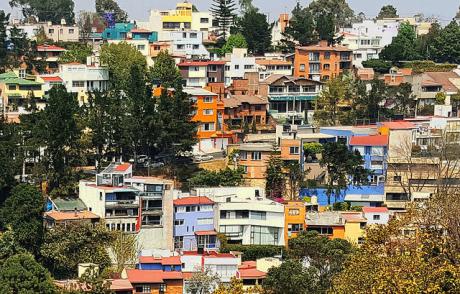What do Barcelona, Montreal, Hamamatsu, Tanger, Haifa, Ballarat and Mexico City have in common?

These cities manage diversity as an asset and as a key principle of their local policies: they are all Intercultural Cities of the Council of Europe, a platform for a wide range of cities (126 on 5 continents), shaping governance models and strategies to build inclusive, fair and prosperous communities in an increasingly open and mobile world.
Intercultural Cities gain immensely through cultural diversity, boosting innovation and growth, with a variety of skills and creativity, while adopting policies and practices that facilitate intercultural interaction and inclusion.
However, the diversity advantage is not automatic. Making sure that trust and solidarity among citizens of different backgrounds hold strong is not easy.
Managing diversity means building shared spaces, offering to all residents opportunities to engage across difference and work towards common goals, while cultivating a pluralistic, inclusive identity with strong common civic values.
From our partners:
This art of mixing in urban policies and governance is exactly what the Council of Europe’s Intercultural Cities’ programme helps to build at local level.
This art of mixing in urban policies and governance is exactly what the Council of Europe’s Intercultural Cities’ programme helps to build at local level.
The results are there to see. One study proved recently that cities which deal with migrants’ integration and diversity in an intercultural way have better overall citizens’ satisfaction and quality of life.
The intercultural approach can make national integration policies more effective. It is now finding its own way beyond local policies. Interculturalism is now a part of Mexico’s National Development Plan, following the key principle present in Mexico City’s new Constitution.
The Council of Europe is facilitating regular exchanges between local and national policy-makers from several countries in order to share intercultural know-how more widely and foster policy innovation at all levels.
In this way our Organisation is contributing to Sustainable Development Goals 11 on sustainable cities and communities and 16 on promoting just, peaceful and inclusive societies, as well as the Global Compact on Migration.
Safeguarding human rights, equality, and democracy in diverse societies is a global challenge. With the help of cities as innovation hubs and a solid multi-stakeholder governance, we can make it work.
This article is written by















